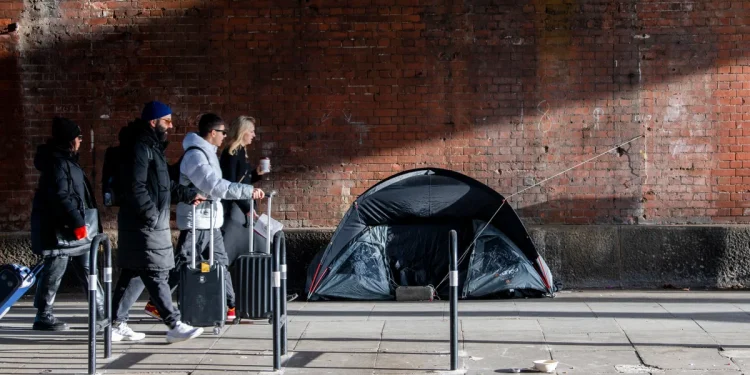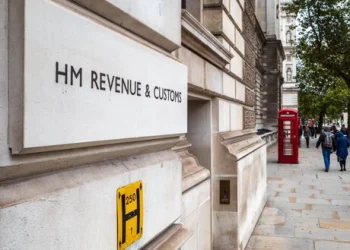A new report by the charity Crisis has revealed that homelessness in England is far more widespread than official statistics indicate. The study, conducted with Heriot-Watt University, found that more than 189,000 families and individuals experiencing the harshest forms of homelessness—such as sleeping rough, sofa surfing, or living in tents—were not included in government data.
The charity estimates that around 300,000 people are now living without stable housing, marking a 20% increase since 2022. Official figures only count those who formally declare themselves as homeless to local authorities, meaning thousands remain unrecorded.
Temporary Accommodation on the Rise
A key factor driving the England homelessness crisis is the rapid rise in the number of people placed in unsuitable temporary accommodation. According to the study, households living in poor-quality or unsafe lodgings, including rundown B&Bs and properties far from social support networks, have risen from 19,200 in 2020 to 46,700 in 2024.
In addition, 18,600 families are currently forced to live in “unconventional accommodation” such as cars, sheds, and tents.
Human Cost Behind the Numbers
The report features stories like that of Isra, a young woman whose family fled Iraq and arrived in the UK in 2009. Throughout her childhood, her family was moved between over 10 temporary homes, many infested with rats and lacking proper facilities. Isra recalls her mother “sifting through bags of rice because there were rat droppings in our food.” Such conditions, she said, made it nearly impossible to focus on school or form friendships.
Calls for Government Action
Crisis CEO Matt Downie urged immediate government intervention, stating, “No one should be forced to live in unsafe conditions—whether children in poor-quality B&Bs or people sleeping in tents or squats.” He called the findings a “national emergency” requiring a coordinated response.
The UK government, however, defended its record, noting that it is investing £1 billion in homelessness services for 2025/26 — a £316 million increase from the previous year. A spokesperson said a new homelessness strategy will soon be launched alongside reforms to abolish Section 21 ‘no-fault’ evictions and expand access to affordable housing.
Local Councils Overwhelmed
The study also found that 70% of local councils reported a rise in people seeking homelessness assistance over the past year. Many councils say they lack resources to manage the growing crisis effectively.
With the situation worsening, housing advocates warn that without bold reform and sustained funding, the England homelessness crisis could reach its highest level in decades—threatening the safety and dignity of hundreds of thousands.






